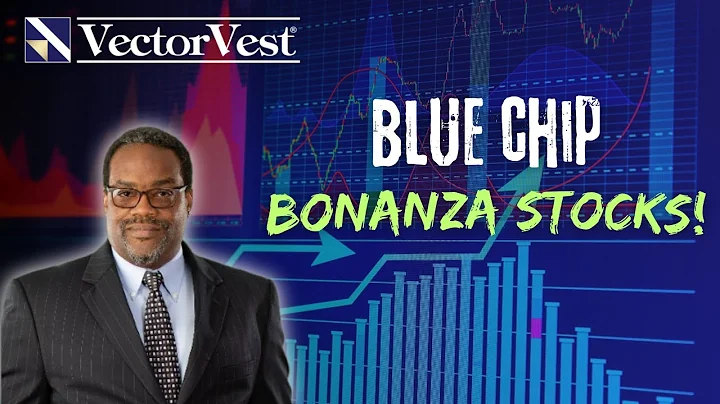Why do investors buy blue-chip stocks?
Blue chip stocks are seen as safer investments than other stocks because of their long histories. These companies have been around long enough, and through so many different economic conditions, that they are likely to weather future changes as well.
Because blue chip companies are relatively stable, blue chip stocks are considered a low-risk investment. In all likelihood, no matter what happens tomorrow, the most established companies in the banking or real estate sector would not collapse overnight, so investing in them is a relatively safe bet.
Investors select "blue chip" stocks because they: Have a reputation for quality management and sometimes pay dividends.
Blue-chip stocks typically have solid balance sheets, steady cash flows, proven business models, and a history of increasing dividends. For that reason, investors generally consider blue-chip stocks to be among the most secure stock investments because of their track records and performance history.
Blue-chip companies especially appeal to cautious investors who prefer consistency and regular returns over higher-risk, high-reward techniques. Long-term investors, particularly retirees, can profit from blue-chip companies' proven ability to weather market downturns and pay dividends.
While blue-chip shares are generally considered more stable and reliable than smaller or newer companies, no investment is entirely “safe”. All stocks, including blue chips, come with inherent risks, including market volatility, economic downturns, and industry-specific challenges.
Investment Philosophy
The Blue Chip Total Return Strategy invests in large cap blue chip stocks with a focus on a dividend yield. Secondarily, the composite looks to invest in stocks that will also appreciate in value over time.
blue chip stock. Stock in a corporation with a national reputation for quality, reliability, and the ability to operate profitably . Dividends. A sum of money paid regularly by a company to its shareholders out of its profits.
They offer investors stable growth, consistent dividends, and resilience during economic downturns. Although blue-chip stocks have their advantages, investors must also be aware of potential risks, such as overvaluation concerns, limited growth potential, and competition.
What do IBM, Walmart, JPMorgan Chase, and DuPont have in common? Although they are in different sectors, they are all known as blue chip companies. Blue chip companies are the mature firms that represent the stalwarts of an industry.
Is Tesla a blue chip stock?
The problem is that despite being included in blue chip ETF indexes, companies like Nvidia and Tesla aren't truly blue chip stocks, George Pearkes, an analyst at Bespoke, told CNN. They're much more volatile. Tesla, for example, is down about 23% so far this year.
A blue-chip stock is a stock that comes from a well-known, established company. Blue-chip stocks have a strong history of performance and often pay dividends.

| S.No. | Company | Industry/Sector |
|---|---|---|
| 1. | Tata Consultancy Services Ltd | IT - Software |
| 2. | Infosys Ltd | IT - Software |
| 3. | Hindustan Unilever Ltd | FMCG |
| 4. | Reliance Industries Ltd | Refineries |
Anchored by core Google properties and its $150 billion stockpile, Alphabet has the stability and vision to drive transformational growth, which is why it's on this list of stable blue-chip stocks. While ad revenue missed last quarter, Alphabet's Q4 sales still rose 13% year-over-year to $86 billion.
Lower Risk Compared to Other Mutual Funds: Blue Chip Mutual Funds are often considered lower in risk compared to other types of mutual funds. Such as small-cap or sector-specific funds. Their investments in large, well-established companies can mitigate the potential for extreme market volatility.
| Company (Ticker) | Sector | Market Cap |
|---|---|---|
| Nvidia Corp. (NVDA) | Technology | $2.26T |
| JPMorgan Chase & Co. (JPM) | Financial | $576.94B |
| Salesforce (CRM) | Technology | $292.14B |
| Caterpillar (CAT) | Industrials | $182.99B |
Income stocks provide regular income by distributing a company's profits, or excess cash, through dividends that are higher than the market average. Blue-chip stocks are shares of well-established companies with a large market capitalization.
| Company Name | Industry | Market Cap (in Cr) |
|---|---|---|
| Tata Motors Ltd | Consumer Discretionary | ₹3,23,502 |
| Bajaj Auto Ltd | Consumer Discretionary | ₹2,17,129 |
| NTPC Ltd | Independent Power and Renewable Electricity Producers | ₹3,07,869 |
| Coal India Ltd | Metals & Mining | ₹2,50,299 |
By investing in blue chips, your investment is more likely to bring good returns and relatively low risk. Blue chips tend to have higher dividend yields, which can provide more income without selling the stock. They also tend to be less risky because their performance is more predictable than other stocks.
Blue-Chip Stocks to Buy: McDonald's (MCD)
The Golden Arches is as blue-chip as stocks come. The hamburger and restaurant chain has been a reliable performer for decades, trades at a reasonable 24 times future earnings estimates, and pays a quarterly dividend that yields a strong 2.40%.
Is Amazon a blue-chip stock?
The Dow Index – popularly known as Wall Street's blue-chip index – has a new look since the beginning of trading on Feb 26. The restructuring of the 30-stock index resulted in the exit of medical-retailer Walgreens Boots Alliance and the entry of the e-commerce super giant Amazon.com Inc. AMZN.
As a small example, Costco Wholesale (NASDAQ:COST) has trended higher by 226% (capital gains) in the last five years. This has led to this list of blue-chip stocks under $20.
Blue Chip Stocks: A Reliable Choice in Any Market
Companies like Coca-Cola, Verizon Communications and Bank of America are all great examples. They've repeatedly proven themselves to be reliable sources of revenue, whether markets are up, down or sideways.
Netflix (NFLX)
Streaming pioneer Netflix (NASDAQ:NFLX) usually makes the list of the top blue-chip entertainment stocks. Through its transformative streaming service, the platform has disrupted the cable industry and then some.